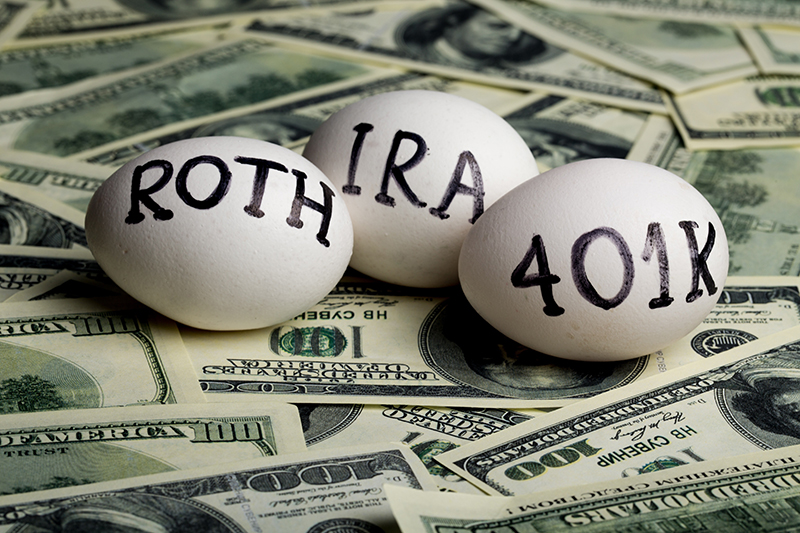How to Deal with Small Business IRS Tax Debt
January, 26 2022 by Karen Reed, EA
Small business owners who are not able to pay their tax balances in full or owe back taxes have access to many of the same types of tax debt relief options that are available to individual taxpayers. The relief opportunities that may be available include installment agreements, offer in compromise, assignment to currently not collectible status, and audit reconsideration. The rules are a bit more complicated for payroll tax debt, especially if the taxes owed are considered “trust fund taxes,” which are the taxes withheld from employees’ wages and are required to be deposited with the government promptly and in full according to a set schedule.
Installment Agreement
If your business owes $25,000 or less, you can apply for an installment agreement online using the IRS’s Online Payment Agreement (OPA) application. If your business tax debt, including penalties and interest, is more than $25,000, you can still apply for an installment agreement by submitting Form 9465, Installment Agreement Request. You can also call the IRS and make your request by telephone. Another option to consider is to pay your debt down to $25,000 to qualify for the online agreement. This option is available to you if you’ve already closed your business but still owe back taxes.
If you owe $25,000 or less in payroll tax debt, an In-Business Trust Fund Express Installment Agreement (IBTF-Express IA) provides a convenient way to get it paid off quickly. This option gives your business two years (or up to the statute expiration date if that comes first) to pay the debt in full.
Offer in Compromise
 An offer in compromise (OIC) is an agreement you can enter into with the IRS to settle your tax debt for an amount that is less than you owe. In general, the IRS will not accept an offer if you have the ability to pay the full amount you owe through an installment agreement or by selling your assets to pay down the debt.
An offer in compromise (OIC) is an agreement you can enter into with the IRS to settle your tax debt for an amount that is less than you owe. In general, the IRS will not accept an offer if you have the ability to pay the full amount you owe through an installment agreement or by selling your assets to pay down the debt.
Keep in mind that if your business owes trust fund taxes, you will want to make sure the trust fund amount is paid before submitting an offer. For the IRS to consider an offer in this situation, the trust fund amount must be paid, or Trust Fund Recovery Penalties must have been assessed on all individuals deemed by the IRS to be responsible parties. There is an exception to this requirement in the event of payroll service fraud or failure to make deposits.
You can begin the OIC process by submitting an application that includes an offer based on your ability to pay. This is done by submitting a completed IRS Form 656 along with a $205 application fee and a Collection Information Statement to support your offer. If your business is a sole proprietorship, you will complete Form 433-A (OIC), Collection Information Statement for Wage Earners and Self-Employed Individuals. If your business is a partnership, LLC, or corporation, you will fill out Form 433-B (OIC), Collection Information Statement for Businesses. It is important to note that the IRS does not allow a compromise on your individual share of a partnership’s debt. Instead, the partnership is required to submit an offer based on its ability to pay and its partners' ability to pay.
The compromise offer you submit must come with an initial payment unless you meet the IRS’s Low Income Certification guidelines. If you choose a lump sum payment option, you will be obligated to send 20% of your offer amount along with your application and then pay off the remaining balance within five months of the date the IRS accepts your offer (and in five or fewer payments). You can also choose a periodic payments option to pay the balance in monthly payments over a period of six to 24 months. If you choose this option, you must continue to make payments while you are waiting for the IRS to respond to your offer. In general, the IRS does not return payments made on an offer, though there are some exceptions.
Currently Not Collectible Status
The IRS may assign your small business tax debt to Currently Not Collectible (CNC) status if you can get them to agree that paying your taxes will create a hardship situation in which you are unable to pay your basic living expenses. The IRS may require detailed information about your income and expenses before making a decision. They may also request that you file any unfiled tax returns before assigning your debt to CNC.
If your account is placed into CNC status, the IRS will continue to assess penalties and interest to your tax debt and may hold back your tax refunds and apply them to your tax bill, which they will send to you annually. The IRS has ten years from the date your taxes were assessed to collect the debt, and they may take you out of CNC status and attempt to collect the taxes if they become aware of an improvement in your financial situation.
Audit Reconsideration
The IRS uses the audit reconsideration process to reevaluate the results of a prior audit when you disagree with the original determination and can provide new information that was previously not considered during the audit of your small business. An audit reconsideration request for your business must be made in writing and submitted with information and documentation to support your position.
Employment Tax Issues
In addition to being responsible for paying income taxes and other types of business taxes, businesses with employees are required to make payroll tax deposits for both the employer’s and employee’s share of payroll taxes. As mentioned above, employee withholdings are known as “trust fund taxes” because employers are entrusted to deposit these funds on behalf of their employees. Serious penalties are assessed for late and inadequate payroll tax deposits, and individuals can be held personally responsible for the taxes if the IRS is unable to collect them from the business. In addition, the Trust Fund Recovery Penalty (TRFP) is one hundred percent of the amount not deposited on time. If you find yourself behind on your payroll tax deposits, make it your first priority to get caught up and avoid having the TRFP assessed against you individually.

There are many options for managing your small business tax debt. A tax resolution specialist from TaxAudit can guide you in choosing the best approach based on the specific facts of your situation. They will help you create an action plan to clear up your tax debt so that you can go back to focusing on your business and financial goals.





